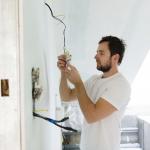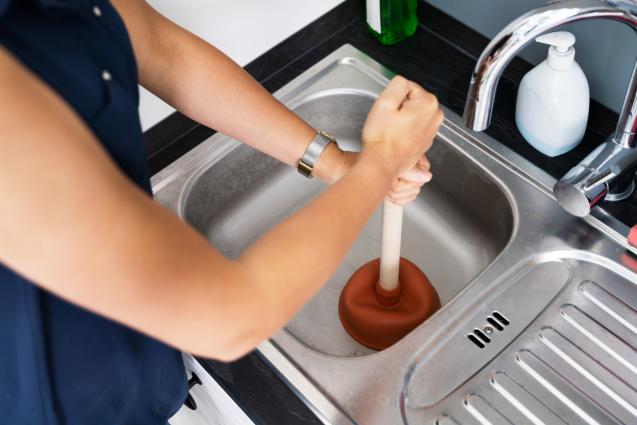
Frequent Electrical System Checks for Your Home: How Often is Ideal
Indeed these checks are not a gratuitous expense or wasted effort. On the contrary, they can prevent dangerous incidents, avoid costly repairs, and deliver peace of mind knowing your home is electrically sound. That being said, you may wonder, how often should these checks be performed? This article aims to answer that question and delve deeper into the various facets of home electrical system checks.
Why Are Regular Electrical System Checks Essential?
Safety is always the primary concern when dealing with electricity. A trivial oversight or minor technical glitch can provoke severe consequences. Thus, regular electrical system checks are instrumental in keeping your home safe. By establishing a habit of routine checks, we can anticipate potential electrical hazards before they pose a threat. These include shocks, electrocutions, and even fires that can result from electrical malfunctions.
However, safety is not the only justification for regular checks. These inspections can also prevent substantial breakdowns resulting in the loss of power. Additionally, when malfunctions are detected early, smaller, less costly repairs can be performed, preventing the necessity of a major, higher-cost repair or replacement later.
Notably, regular checks can help improve the system's efficiency, leading to lesser energy consumption and smaller power bills. Lastly, there's a mental comfort that accompanies the knowledge that your home's electrical system is functioning safely and correctly. This peace of mind is truly invaluable.
Signs Your Home May Need an Electrical System Check
Though electrical system checks should be regular, knowing when to order an extra check could circumvent significant issues. Several signs might clue you into your home needing an immediate electrical system check.
Frequent trips in the circuit breaker are one such sign—these hint at an overloaded electrical system. Then, there's the presence of damaged or frayed wires. Such damaged wires are not just a safety hazard but could lead to impaired functionality of your appliances or even fire. Another giveaway is flickering lights, which could suggest faulty wiring, or problems associated with your home's electrical panel.
Your home's age is another determining factor. Older homes were built with electrical systems designed for lesser electrical load compared to the modern home. Tackling this issue promptly could prevent potential mishaps.
Understanding Different Types of Electrical System Checks
By now, it's clear that regular electrical checks are essential. However, it's also crucial to understand that there are different types of checks—each designed to fulfil a specific purpose.
Safety inspections are vital for any home. As the name suggests, these inspections are geared towards ensuring that all your electrical components are up to the safety standards set by Australian codes.
Regular maintenance checks, generally conducted annually, form the backbone of preventive care for your home's electrical system. Regular inspections enable you to detect potential issues early, making them cheaper and easier to address.
System performance checks focus on ensuring that the system is operating maximally. An inefficient electrical system doesn't just increase your power bills—it can also shorten the lifespan of your appliances.
Emergency checks, the last in this category, are reserved for immediate issues such as a sudden power loss or visible damage to wiring.
How Often Should Electrical Checks Be Conducted?
While there's general consensus that regular electrical checks are crucial, the frequency might vary based on multiple factors. For new homes, given their modern, more efficient systems and assuming a minimal level of usage, checks every 3-5 years are acceptable.
However, for older homes or those with intensive electricity usage, annual or biannual checks are strongly recommended. It's worthwhile reminding ourselves though that these guidelines are not rigid. Events like storms or renovations can warrant immediate system checks irrespective of when the last check was performed.
Hiring Professionals for Electrical System Checks
Attempting to do electrical checks on your own could be catastrophic. Irrespective of how many online guides or manuals you read, nothing substitutes for professional expertise.
A certified electrician not only has the required know-how but also possesses the tools necessary for a thorough and safe check. When choosing an electrician, be sure to evaluate their credentials, experience, client reviews, and of course, cost.
A professional inspection will involve a comprehensive system check. This process will identify minor technical hitches and fix them before they escalate into significant issues, hence saving you money and guaranteeing your home's safety.
Conclusion
We cannot dispute the high stakes associated with electrical safety. Regular electrical system checks play a crucial role in promoting safety, saving costs, preventing accidents, and ensuring peace of mind. While the frequency of checks may vary based on certain factors such as your home's age and electrical usage, the key message is that these checks are important.
Using a trusted certified electrician for these checks is not just a recommendation—it's a necessity. This is the only way to ensure that the checks are correctly done, mitigating any electrical risks in your home. As you plan for your daily, monthly or yearly home maintenance, let the electrical system checks be a priority. By doing this, you're protecting your home, your family, and yourself.



